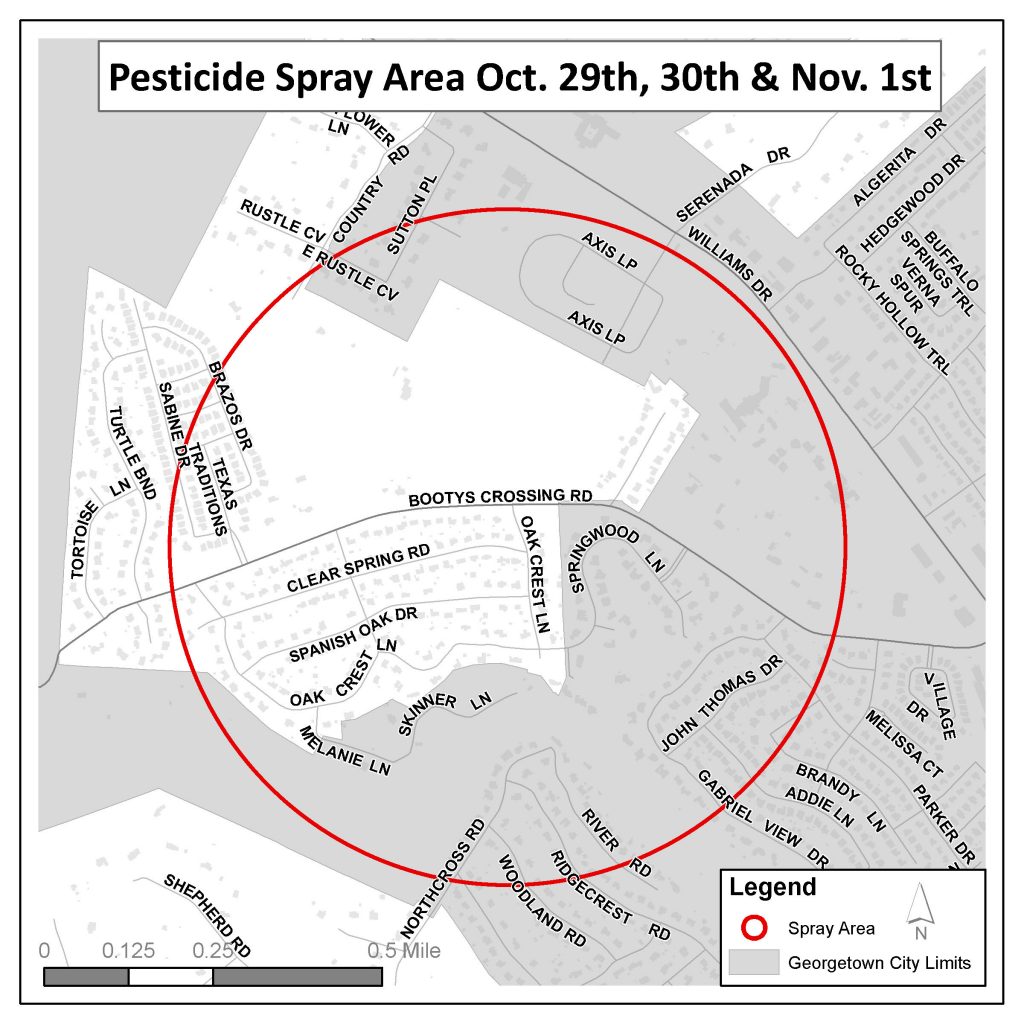Human Case of West Nile Virus Investigated
Residents urged to take basic prevention measures
 Williamson County and Cities Health District (WCCHD) officials are investigating the first probable human case of West Nile virus (WNV) in Williamson County. The case is a male over 55 years of age. WCCHD was notified of the case on Thurs. Oct. 27. WNV continues to heavily circulate in mosquitoes throughout Williamson County. As of today, testing has indicated that there have been nine pools of mosquitoes carrying WNV in Williamson County.
Williamson County and Cities Health District (WCCHD) officials are investigating the first probable human case of West Nile virus (WNV) in Williamson County. The case is a male over 55 years of age. WCCHD was notified of the case on Thurs. Oct. 27. WNV continues to heavily circulate in mosquitoes throughout Williamson County. As of today, testing has indicated that there have been nine pools of mosquitoes carrying WNV in Williamson County.
Enhanced trapping and testing will occur in the area of the patient’s residence. A pesticide contractor is scheduled to spray in the vicinity. Spraying is planned Sat. Oct. 29, Sun. Oct. 30 Tue. Nov. 1 starting at 9 p.m. in the Oak Crest area in the City of Georgetown and unincorporated Williamson County. A map is included showing the area where application of the pesticide is planned. Although the mosquito control product poses no significant health risk, if possible, people and pets may want to stay indoors during spraying.
The most effective way to prevent becoming infected with WNV is to follow the 4Ds:
- Defend by using an EPA-approved insect repellent, especially at
- Dusk and Dawn when the culex mosquitoes are most active,
- Dress in long sleeves and pants when outdoors,
- Drain standing water in flower pots, pet dishes or clogged gutters so mosquitoes don’t have a place to breed and treat water that can’t be drained.
Most people (70-80 percent) who become infected with West Nile Virus do not develop any symptoms. About 1 in 5 people who are infected will develop a fever with other symptoms such as headache, body aches, joint pains, vomiting, diarrhea, or rash. Most people with this type of West Nile Virus disease recover completely, but fatigue and weakness can last for weeks or months. Less than 1% of people who are infected will develop a serious neurologic illness such as encephalitis or meningitis.
Illness can occur 3-15 days after an infected mosquito bite and can affect all ages, but people over the age of 50 and those with a chronic disease, such as heart disease or cancer, may be at increased risk for serious complications. For that reason, people who experience high fever, confusion, muscle weakness, severe headaches, or a stiff neck should see a doctor immediately.
West Nile Virus is not passed from human to human and should not be confused with other mosquito-borne viruses. For more information on mosquito prevention methods or about West Nile Virus visit www.wcchd.org or www.txwestnile.org.









